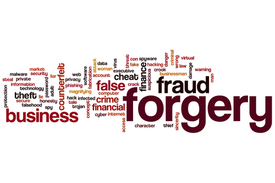
Industry insiders know that some auto dealerships regularly engage in criminal activity. For example, one employee of a large Connecticut dealership recently confirmed to me that dealership employees routinely forge signatures; he said that forging a signature was “like smoking a cigarette,” something done many times a day.
Another type of criminal conduct by car dealers closely resembles the fraud in the mortgage industry that caused the financial crisis. Some dealerships routinely submit false information to banks and finance companies in order to get deals approved. They might lie about a consumer’s income or employment, or they might “exaggerate” about how a vehicle is equipped, so that the finance company won’t know that the consumer is overpaying. The consumers are harmed when they are unable to keep up with their payments and the car is repossessed.
Subprime borrowers, or consumers who don’t have good credit, are particularly vulnerable to being victimized by criminal conduct. A recent New York Times article explored in great depth some of the illegal activities of unscrupulous dealers. Sometimes, law enforcement will go after the worst offenders. But, most of the time, illegal conduct goes unchecked. This creates a terrible problem for low income consumers who require reliable transportation to get to work and take care of their families.
Many of our clients have told me that they complained to the local police about illegal dealership tactics. Typically, the police refuse to take a complaint, claiming that it is a “civil” matter and they should find a lawyer to bring a lawsuit. Yes, consumers can retain an attorney and sue a car dealership for fraud. Indeed, that is Consumer Law Group’s raison d’être – the reason for our existence. Consumers who have been harmed by auto dealer fraud should seek an experienced lawyer. We handle most cases of that type at no cost to the consumer.
But, law enforcement should also play an important role in protecting consumers. Perhaps if there were more prosecutions, dealerships would think twice before engaging in criminal conduct. If there was less fraud, then consumers would be better protected and honest car dealers would have a better chance to compete in the marketplace. No one benefits from lack of enforcement except the criminals.
